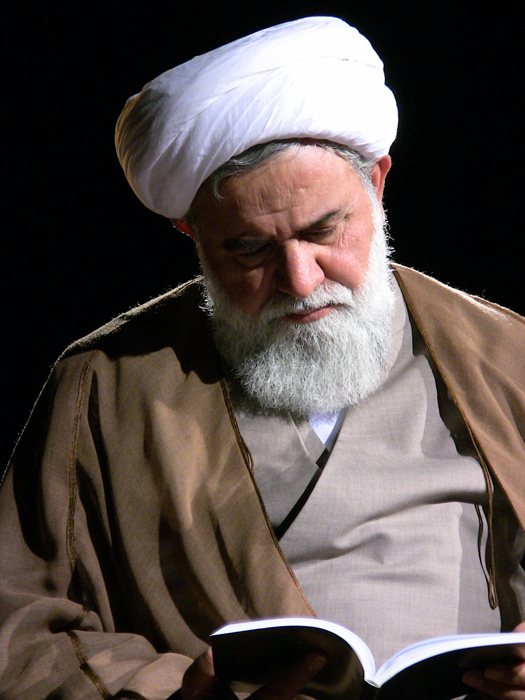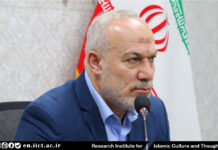Professor Ali Akbar Rashād
Prelude
Dear Mr. John Hick!
With the sincerest greetings and best wishes
In 1997, Mr. Abdolkarim Soroush published an article in Iran (Kian, no. 36, “Straight Paths”) in which inspired by your ideas and referring to them[1], religious pluralism was defended. Just after it, I wrote an article to criticize his article (Qabasat, vol. 2, no. 2, 1997 (Summer), “Taking the Water of Life to Darkness”). Since then I was waiting to meet you and speak with you concerning your theory. Fortunately, we met each other in Birmingham University on December 12th 2002. (I sent you a summary of that scientific meeting; but since I received no reply, I published it as it was. Now, I will add it at the end of this writing as the attachment 1).
Before that time, I has a different idea of you; in that meeting, however, I found you a gentle, patient, polite, gracious, adhered to his own religious beliefs, fair, and open-minded man. I felt that, because of benevolent motivations and by a firm decision and faith, you were trying to introduce, explain, justify, and propagate a view which you thought of it as a solution for bitter historical debates and wars stemmed from plurality of religions and inconsistencies between them; and you have insisted upon this way for more than half a century. After that meeting, I have repeatedly admired these characteristics in scientific circles. This motivated me to invite you once again to pay a visit to the Institute of Islamic Culture and Thought in Tehran on February 21st 2005.
Discussions in the second meeting as well as our sincere discussion during the symposium dated February 22nd in my office reconfirmed your good characteristics.
In reply to critiques I posed against your theory during the conference held in the Institute, you said that you were not sufficiently ready to provide replies. You recommended me to send you my critiques so that you might have enough time to provide replies for them.
Now, and after the letter dated August 15th 2005 and messages to follow-up the issue sent by you, I have to apologize you, since my various concerns and program did not allow me to respond to your request before this time. Now, I present some points to discuss your theory in brief; and I am waiting enthusiastically to receive your replies. I hope that you, unlike me, will not delay in your response. Of course, for the time being, I have put in writing three (of ten) chapters (conceptological critique, methodological critique, and epistemological critique) which I send you. The other chapters will be put in writing and sent gradually.
Dear Mr. John Hick!
You know that your reading of religious pluralism is not only a theory concerning “other religions”- which is in its right one of the issues of philosophy of religion- but, because of your restless attempts, it has become an extensive theory, and even a special philosophical discourse (our paradigm) to think “about religion” and “in religion”; and based on it, you have founded a special approach in theology and an independent school in philosophy of religion.
Thus, if your reading of pluralism is accepted, man’s definition for, and understanding of, all religious issues will change. Within the context of religious pluralism, as viewed by you, nature of religion, essence of religion, religious knowledge, belief and disbelief, worship and religious practices, goal and function of religion, scope of religion, prophethood, origin of religion, language of religion, God, His attributes, guidance, salvation, resurrection, …, all and all, should be interpreted differently. You have been well-aware of these point; and in a recent interview you have said: “Pluralistic view should help us to understand intra-religious claims differently, and re-understand them” (Madrasah, no. 2, 2005 (Autumn), p. 51). You have added: “I think that if pluralism is accepted, classical theological teachings should be re-understood” (ibid., p. 52). But, and nevertheless, in the present essay, I have decided to discuss your religious pluralism only as a theory (and not a school in philosophy of religion or a paradigm in religiology).
A complete and efficient theory should enjoy important characteristic, including: 1) conceptual transparency, 2) a concrete main subject, 3) coherent parts and elements, 4) a suitable and consistent methodology, 5) clear and firm presuppositions and principles, 6) firm and resistant arguments and pieces of evidence, 7) ability to criticize and falsify opposing theories, 8) sufficient generalizability, 9) useful theoretical and functional results.
Now, we should find to how extent your theory of religious pluralism enjoys the above-mentioned characteristics. Your theory, I think, may be criticized in the following aspects:
1- Transparency of concepts and claims the theory
2- Methodology (methodological critique of the theory)
3- Epistemological principles and arguments (epistemological critique of the theory)
4- Philosophical and rational principles and arguments (rational critique of the theory)
5- Principles and arguments taken from philosophy of religion (critique of the theory based on philosophy of religion)
6- Critique of theological principles and argument (intra-religious critique of the theory)
7- Ability to falsify the opposing theories
8- Generalizability of the theory to all religions, religious traditions, and kinds of religious knowledge
9- Evaluation of the success of theory in theoretical realm (explanation of the issue of other religions)
10- Evaluation of the success of theory in practice (whether it has succeeded to solve the problem of religious debates and remove the obstacles to peaceful co-existence between followers of various religions).
Now, I will go to discuss your theory of religious pluralism
based on the above ten themes.
[1] . In an interview and meeting with you dated August 5th 2005 in your home in Birmingham, Mr. Soroush has said: “pluralist ideas occurred to my mind 8-9 years ago. Then, I did not read your book; later I read and cited it in my book” (Madrasah, no. 2, Surati bar bi surati (Making form of Formless), 1995). In his article “Straight Paths” which is his first writing to introduce and describe religious pluralism, he has gone to explain, defend, and pose new argument for your theory based on your article “Jews, Christians, Muslims: Do We All Worship the Same God?”. Then he distinguishes Rahner’s inclusivism and your theory of religious pluralism. One year after publishing the above article, Mr. Soroush added a note, two interviews concerning religious pluralism, translation of “The Epistemological Challenge of Religious Pluralism”, translations of Plantinga’s “A Defence of Religious Exclusivism” and “Ad Hick”, and translation of Mr. Basinger’s “Reformed Epistemology and Hick’s Religious Pluralism”, and thus made and published a book (Straight Paths) in 330 pages












